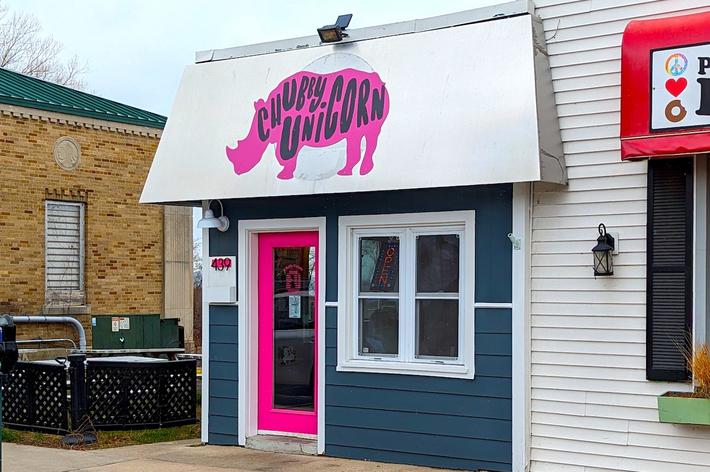New Water Order: Maude Barlow on the Privatization of Water
Nov. 6, 2002
New Water Order: Maude Barlow on the privatization of waterWhat‘s the big deal over water these days? More and more people around the
world are confronting this question. Here in Michigan, a
controversial water bottling scheme in Mecosta County has resulted in
increased public debate on the subject, as well as a lawsuit, and a variety
of “direct actions,“ including a recent blockade of the bottling plant by
activists calling for an end to what they call “water theft.“
Maude Barlow is an internationally renowned activist and author of 11
books and numerous reports relating to water and economic globalization.
In early September she joined water activists from around South Africa and
the rest of the world to call for an end to the “corporatization of water“
at the World Summit on Sustainable Development (WSSD). With water scarcity
and pollution of freshwater reserves on the rise, water was at the top of
the agenda in Johannesburg.
Closer to home, in recent talks to students and activists from around Michigan, Barlow stressed the need to make connections between the growing movement against
Ice Mountain/Perrier/Nestle Waters North America in this state, and other
struggles against water privatization around the world.
The New Water Order
The meetings in Johannesburg were what many have come to expect of official
summits. There were the delegates -- mainly representing the corporate
world -- as well as bankers, trade ministers, and a few heads of state. Then
there were the people: the grassroots organizers from communities where
people have lost control of their water to transnational corporations
seeking to cash in on what Fortune Magazine has called “the wealth of
nations.“
Although Barlow is most at home with ordinary people,agitating for
democratic change, she used her WSSD delegate‘s pass to investigate what she
described as “one of the most cynical and awful things I have ever seen in
my life.“
Delegates met at the Coca Cola sponsored U.N. conference on water
inside swank meeting spaces, surrounded by fountains and water-themed
displays including billboards for DeBeers diamonds declaring “Water is
forever.“ Here, in the new financial capital of South Africa, officials
advanced their agenda of mass privatization of water resources as a means of
dealing with a global water crisis.
Some of the WSSD events happened inside a casino at “The Water Dome,“ which
one entered through a lavish shopping mall draped in advertisements and
products no ordinary person could afford. This contrasted sharply with
conditions in nearby townships where some of the world‘s poorest people are
suffering 85-90% unemployment, and have no water at all.
“It had the feeling of a grand trade show, including dressed up Zulu
warriors and dancing women who were supposed to be the Nile,“ she recalls. Barlow said
that this scene contrasted harshly with life beyond the summit gates,
where 10 million South Africans have had water services suspended since
post-apartheid privatization of the utilities took place.
Barlow described visiting the township of Orange Farm where people live
among rats in corrugated steel shacks, while state-of-the-art electronic
meters control the trickle of water that comes to them for a fee each month.
When residents cease being able to pay rising water costs representing as
much as 20% of a family‘s monthly income, private security firms go in and
cut off service. Here, Barlow said, corporations are “making money off the
poorest people on the world.“
Michigan‘s Water for Sale?
To understand what this means in local terms one need only look at the
40,000 square foot Ice Mountain plant in rural Mecosta County. Hovering
like a fortress on what was once a working family farm, it is here that
water which has traveled 12 miles from a private hunting reserve within
the Muskegon River watershed arrives by way of stainless steel pipes laid
in the ruins of a once-forested corridor. The water is treated with
biocides and injected into non-recyclable plastic bottles. Every day
palettes full of shrink-wrapped bottles are loaded onto semi trucks for
distribution at Meijer, Sams Club, and other retailers throughout the
midwest.
Most of this water leaves the basin, never to return, resulting in what
many believe is an “export and diversion“ of Great Lakes water. According
to Jim Olson, attorney for the citizens group challenging the project in
state court, water should be preserved in the public trust, but the Ice
Mountain project violates that.
Critics say that schemes like the one in central Michigan are symptomatic of the global trend toward “water for profit,“ where bigger and bigger businesses are
capitalizing on water scarcity.
“No one is talking about this water going to people in need. This is
boutique water,“ Barlow said.
“In the U.S., the water shortages are already here. You already have deep
drought, and watersheds drying up,“ Barlow said, likening the earth to an
apple that is beginning to shrivel up for lack of moisture. Addressing a
group of around 150 students and concerned citizens at Central Michigan
University she said, ““We are facing probably the greatest ecological threat
to our survival... You have nothing more important to do than to take
care of the water heritage.“
Barlow came to Michigan because she believes that those who are
working on water rights in this region are “on the cusp of the most
important issue of our time.“
“In the end, if you don‘t have the local resistance you are going to lose.
This is where people experience their lives. It is not an esoteric thing.“
What are the Options?
In an interview what she thought about the Ice Mountain plan, Barlow said
she has experience working with citizens considering a water bottling
venture in Newfoundland, Canada. She said that if this is deemed the most
appropriate and desirable form of economic development, people should
seriously think about doing it for themselves rather than letting a
transnational corporation control the conditions of the project. At the
same time, she is cautious and concerned about the fact that under Chapter
11 of NAFTA, operations of the sort risk opening up the province or the
state to unfettered exploitation. At this point, what weak laws exist to
protect the water are no longer honored since “trade friendly“ NAFTA terms
often supersede local and federal environmental regulations.
She is firm that people can come up with better ways of going about
business. Water bottling schemes must be regulated, locally controlled,
environmentally safe, and should not be pumping out more than the watershed
can sustain. A strong recycling program could defray some of the
environmental costs of all those discarded bottles that are now languishing
in the watershed, Barlow said.
According to her recent book “Blue Gold: The Global Water Crisis and the
Commodification of the World‘s Water Supply,“ which is sold out in the
United States at present “In 2000 over eight billion gallons of water was
bottled and traded globally; over 90% in non-renewable plastic.“
Asked what alert, motivated citizens can do in this movement, Barlow said
“direct action is an enormously important element in the work we have to do.
We have to continue to have the on-the-ground resistance, and we have to
connect up the international and local struggles.“
Nationally, there needs to be legislationi protecting water. The “growth at
any cost“ mentality which has dominated the political debate thus far is the
logic of the cancer cell. Barlow advocates that citizens hold governments
accountable, and says they must establish new strategies of going forward based
on watershed management, conservation, and equity.
At the international level, people need to confront water
privatization. Much of Barlow‚s own activism with the 100,000 member strong
Council of Canadians is a response to the fact that people everywhere in the
new globalized economy are experiencing an unprecedented “assault on
everything we grew up believing belonged to the common heritage -- water,
genes; the salmon before they are caught, the rain before it falls.
“To my mind, groups like Sweetwater Alliance are the visionaries,“ she added. “They are the ones that are seeing the problem before anyone else sees them. They the canary in the mine shaft. They are the ones people should be listening to,
and also deeply grateful to.“
Trending

Springtime Jazz with NMC
Award-winning vibraphonist Jim Cooper has been playing the vibraphone for over 45 years and has performed with jazz artist... Read More >>
Dark Skies and Bright Stars
You may know Emmet County is home to Headlands International Dark Sky Park, where uninterrupted Lake Michigan shoreline is... Read More >>
Community Impact Market
No need to drive through the orange barrels this weekend: Many of your favorite businesses from Traverse City’s majo... Read More >>


